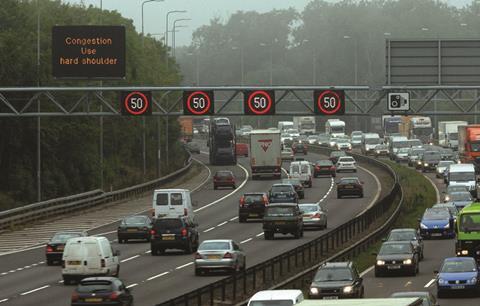
RHA chief executive Richard Burnett has called for better refuge areas and clearer signage on Smart motorways amid growing industry calls for the idea to be scrapped.
BBC’s Panorama (27 January) revealed that 38 people had been killed on smart motorways in the last five years and ‘near misses’ on a section of the M25 had risen 20-fold since the hard shoulder was removed in April 2014.
The government minister who approved the roll out of the system told the programme he was misled about the risks of removing the hard shoulder from long stretches of motorway.
The Rt Hon Sir Mike Penning MP, chair of the All-Party Parliamentary Group on Road Freight and Logistics said: “They are endangering people's lives. People are being killed and seriously injured on these roads, and it should never have happened.”
Commenting, Burnett said: “This is yet another example of Brexit paralysis where critically important homeland issues have been left by the wayside. In this particular instance, lives have been lost and that is totally unacceptable.
Read more
- Lawyers call for ban on Smart motorways after spate of fatal accidents
- Better educate drivers on how to use smart motorways and enforce penalties more strictly, says logistics industry
- The public needs urgent education about how to use smart motorways safely, says watchdog
“Smart motorways undoubtedly increase capacity but they are not as safe as they should be. They need bigger and more frequent refuge areas and better signage to ensure drivers understand when hard shoulders are closed to active running. These are important issues on which we have been expressing our concerns since hard shoulder running was first introduced on the M42 in 2006.
"Panorama also made it very clear that many motorway users have no idea what smart motorways are - let alone understand how they work. This is extremely worrying. It's essential that safety improvements include an effective system of road user education.
"Transport secretary, Grant Shapps will shortly be publishing a review into the safety of smart motorways and we are confident that recommendations to improve the safety of the network will be acted upon as a matter of extreme urgency."













